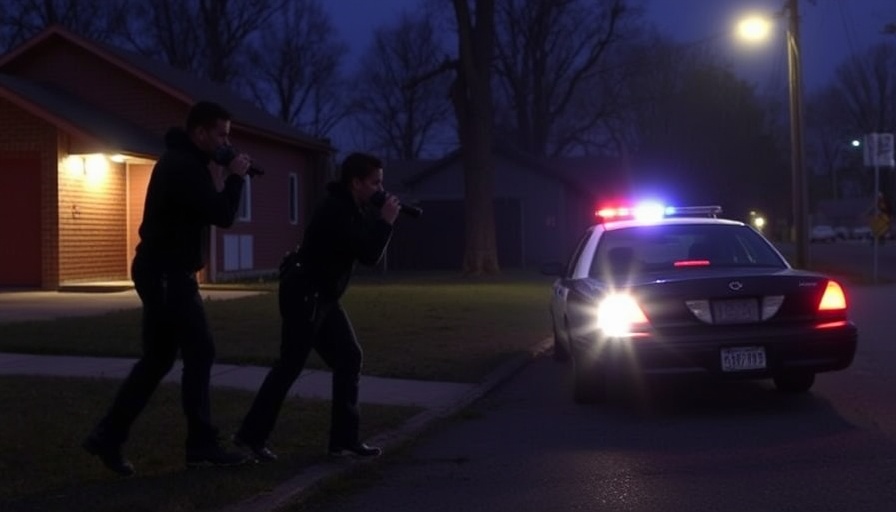
The Dangers of Viral Trends: What Happened in Arlington?
The recent tragic incident involving a North Texas teen in a game called "Senior Assassin" has brought the risks of viral challenges to the forefront of public conversation. In Arlington, 17-year-old Isaac Leal was critically injured during a game popular among high school seniors where players eliminate opponents using water guns. The event escalated into a dangerous scenario when Leal fell from a moving vehicle, highlighting the potential hazards associated with seemingly harmless school traditions.
Understanding 'Senior Assassin' and Its Popularity
"Senior Assassin" has become a common rite of passage for high school seniors nationwide. The game encourages creativity and camaraderie, allowing students to bond over playful competition. Yet, the lack of structured rules means that safety is often overlooked, as was the case on April 20 in Arlington. While the game aims to foster excitement, it can devolve into risky behavior if participants do not consider the consequences of their actions.
No Criminal Charges: An Examination of Accountability
According to Arlington police, their investigation concluded that the driver of the Jeep involved in the incident was not at fault for Leal's injuries. This outcome has sparked debates about accountability in such instances, raising questions about parental oversight and the responsibilities high school students bear when engaging in these viral trends. The decision not to file charges might ease legal repercussions for involved parties, but it does little to address the underlying issues of safety and risk awareness associated with such games.
Raising Awareness: The Role of Parents and Schools
The police statement urging parents to talk to their children about the dangers of viral trends emphasizes the shared responsibility parents and schools have in educating teens about risk management. Parents are encouraged to engage with their children about the potential hazards of seemingly harmless games like "Senior Assassin." Discussions on safety should extend beyond just viral games; they must include conversations about responsible decision-making, understanding personal limits, and assessing risks in various situations.
Future Implications: Avoiding Tragedies in Viral Challenges
The unfortunate incident involving Isaac Leal is a wake-up call for both students and parents alike. As online challenges and games continue to gain traction among school-aged children, it is crucial for communities to implement safety guidelines and foster an environment where teens can enjoy these activities without risking their well-being. Schools can play a critical role by establishing clear policies about participating in such games and promoting discussions around safety among students.
Common Misconceptions about School Traditions
It's easy to dismiss "Senior Assassin" and other viral trends as harmless fun, but misconceptions around these games can lead to serious consequences. Some might argue that these activities promote bonding and fun, yet the potential for injury and reckless behavior can far outweigh these benefits. Identifying and addressing these misconceptions can help foster a culture of mindfulness and responsibility among teenagers.
Conclusion: Take Action for Safer Traditions
The vibrant tradition of games like "Senior Assassin" should not risk students' safety. Both parents and schools need to take proactive measures to ensure that such cultural phenomena do not spiral into avoidable tragedies. Engaging in dialogue about risks and accountability will empower students to navigate social challenges more safely.
 Add Row
Add Row  Add
Add 




Write A Comment